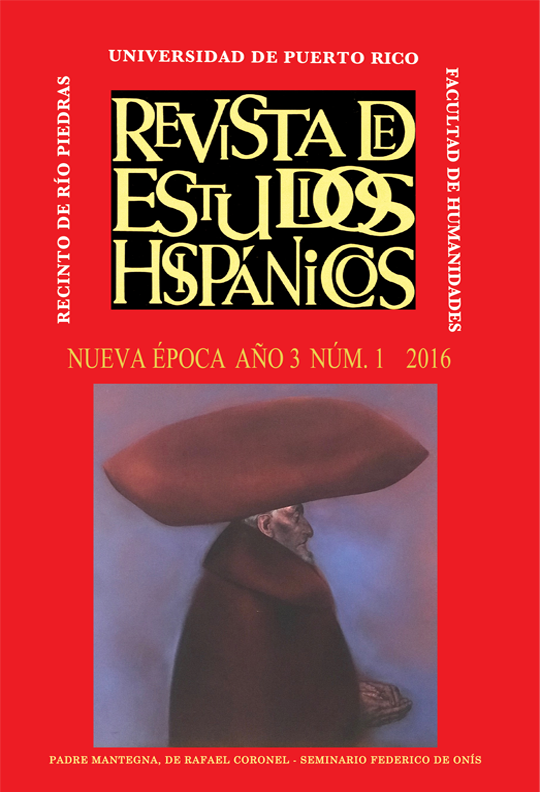Abstract
In his wise definitions of what is a classic, among them, a facsimile of the universe, Italo Calvino declares that a classic is a book that never gets to say what is to be said. From this perspective I will approach Galdós‘ novel Tristana, with a close reading of its enigmatic ending, full of ellipses that silence what the reader expects to hear. And examining Galdós technique of saying without saying, which turns closure into an open door which welcomes the multiple readings that reaffirm that Tristana is a classic.This work is licensed under a Creative Commons Attribution-NonCommercial 4.0 International License.
Downloads
Download data is not yet available.

